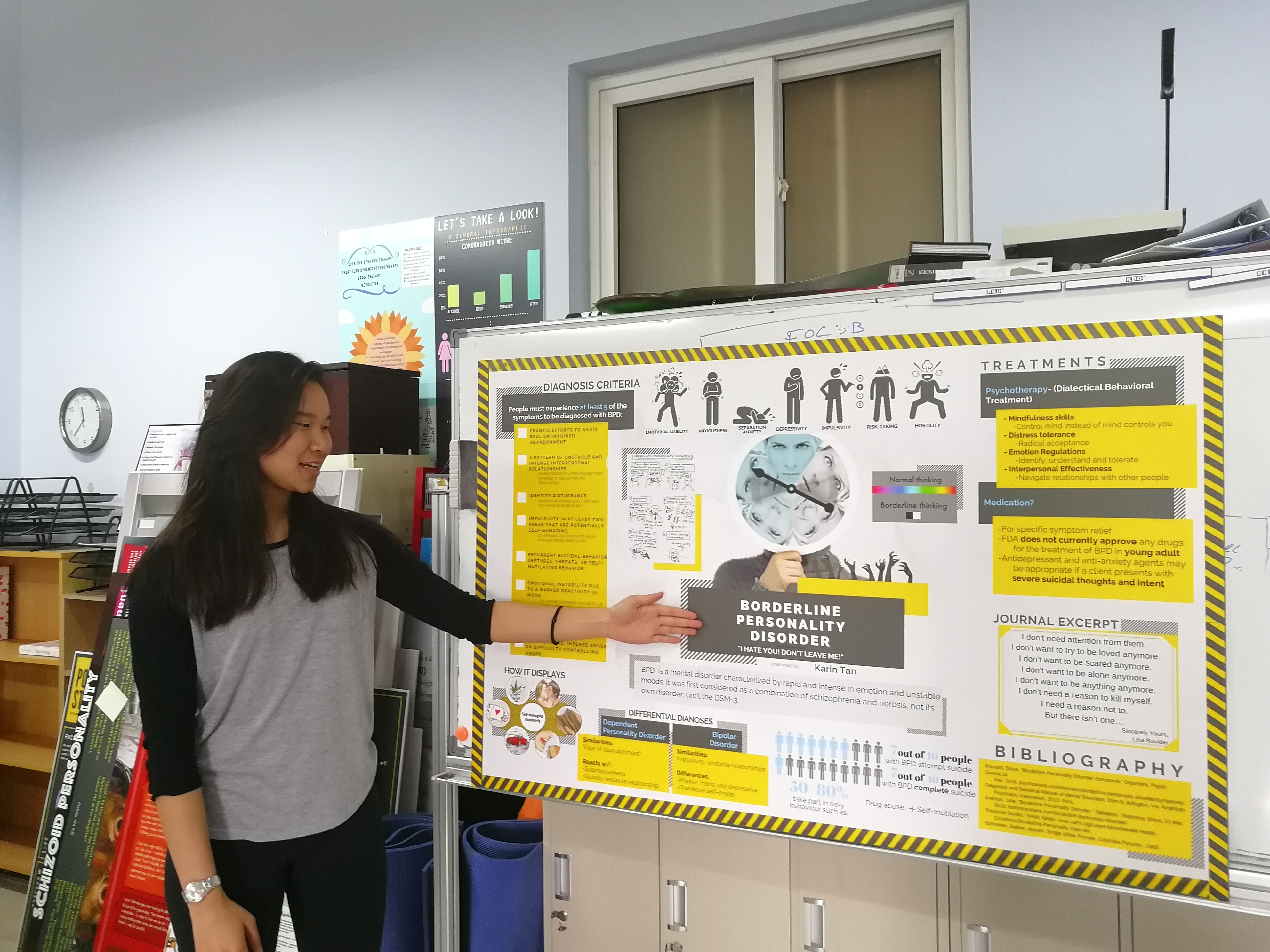AP Psychology students present projects that shed light on the reality of mental disorders
From May 6 to 13, AP Psychology students presented their quarter-long project. Each student was assigned a mental disorder and conducted detailed research. Then, they were to write 10 journal entries from the perspective of a person developing the disorder, and then create a research poster that consisted of a descriptive diagnosis of their disorder, complete with treatments, causes, symptoms, and a bibliography. Due to senior graduation ceremony just around the corner, all seniors have completed and presented their projects, but the juniors are still preparing for their presentations in June. Every student was to invite two teachers and one former AP Psychology student to grade their presentation.
This project was created for people to have “awareness of the importance of mental health concerns and also to create empathy,” stated Mr. David Osborn, the AP Psychology teacher. He also expressed that he is satisfied with the students’ works since the “overwhelming majority of the students put a lot of time and energy [into the projects.]” He further stated that the “journaling [portion] was about evolving [the mental disorder] and becoming more aware of the difficulties of mental health. The posters gave the students an opportunity to showcase what they knew and to become experts in the area.” Mr. Osborn intended to spread awareness of mental disorders and for people “not connected to the psychology program to know that it is part of a person and not a weakness. By overcoming it, it makes people stronger and better.”
Karin Tan (12C) presented borderline personality disorder, in which patients who are diagnosed with it “show pervasive pattern of instability of interpersonal relationships, self-image, self-mutilating impulsivity and fear of abandonment.” In retrospect, she stated that she would have spent more time detailing her journal as there may be some flaws in how her character displays the characteristics.
Ryan Au (12C) wants perceptions toward Tourette syndrome to change by letting people know that people with it cannot control their own actions, so they should not bully or tease the persons suffering from this disorder for those actions.
Peter Park (12C) chose schizotypal personality disorder, which “identifies with severe social anxiety, thought disorder, paranoid ideation, derealization, transient psychosis, and often unconventional beliefs.” He expressed that “when people think of mental disorders with hallucinations and paranoia, they often link it to violence. Movies often exaggerate scenes to leave a stronger impression, but people must know that not all scenes are accurate.” Peter hopes that people could sympathize and understand the mindset of people who are diagnosed with schizotypal personality disorder.
Featured Image-Karin Tan presenting her Borderline Personality Disorder Photo Courtesy of Justina Kim
by: Justina Kim

